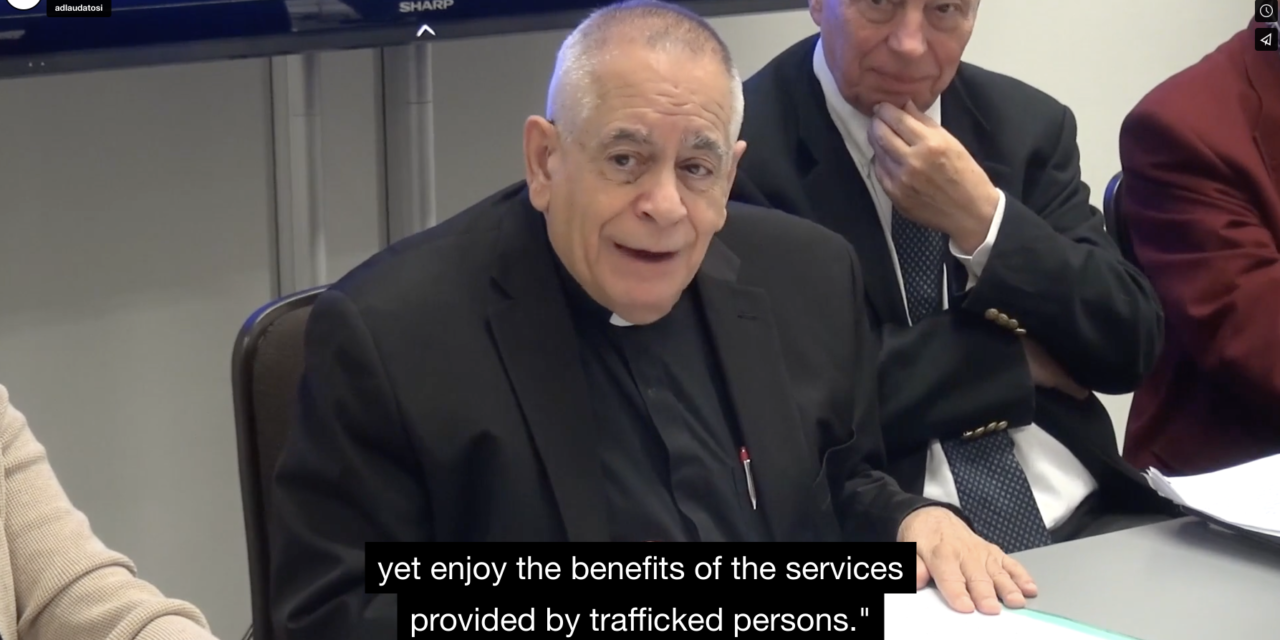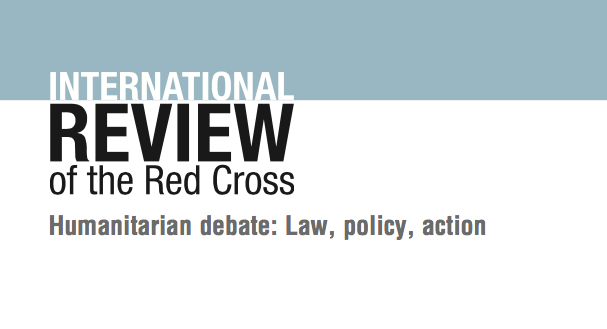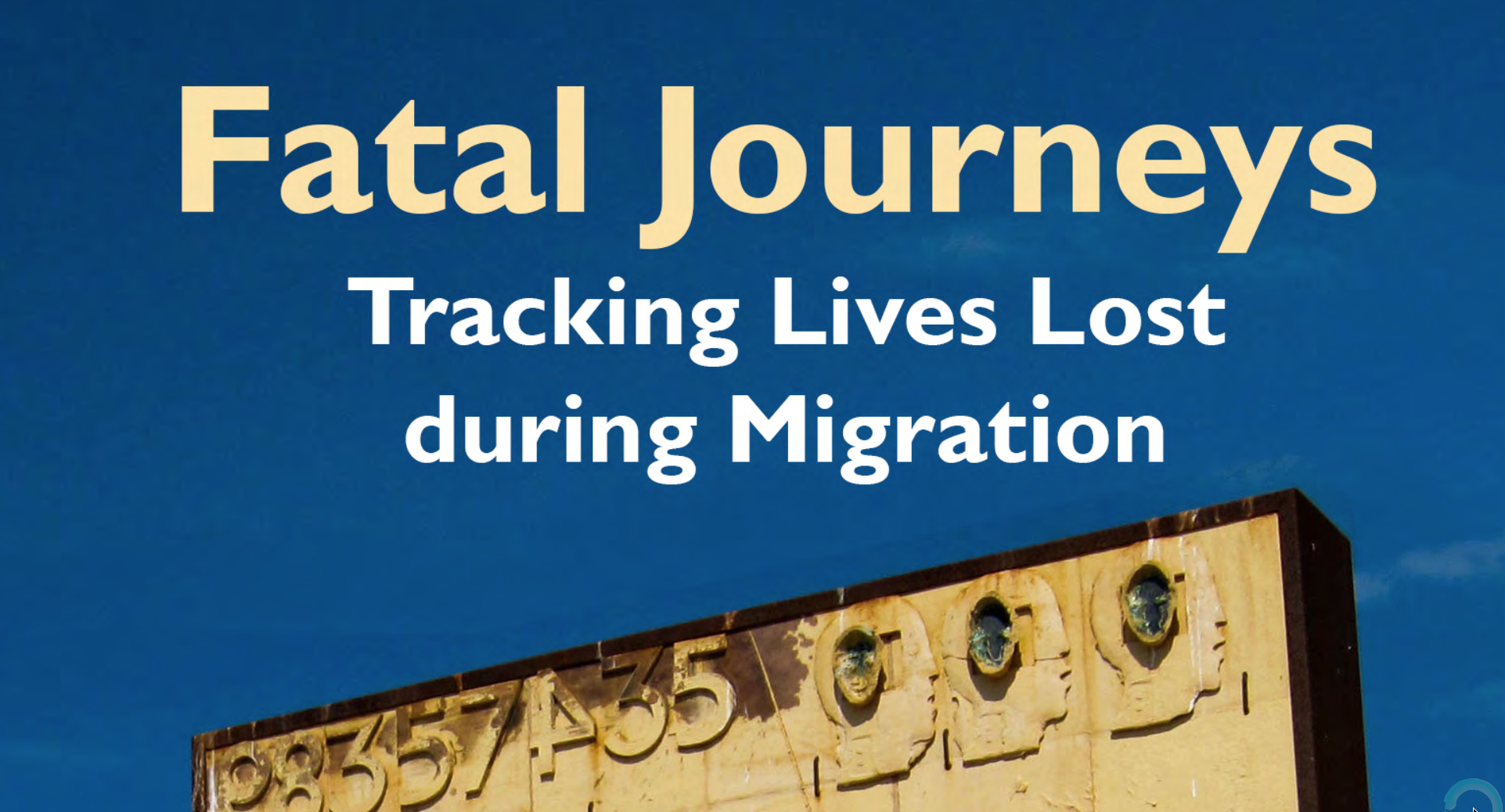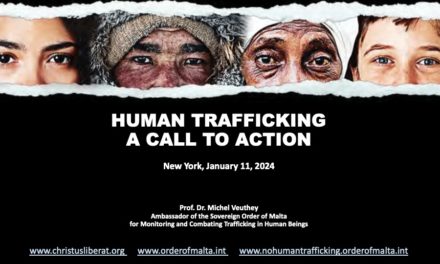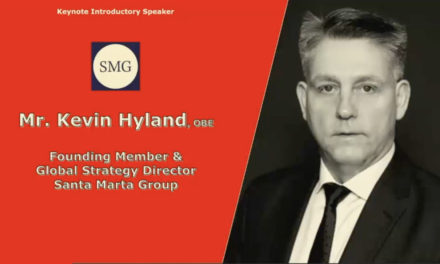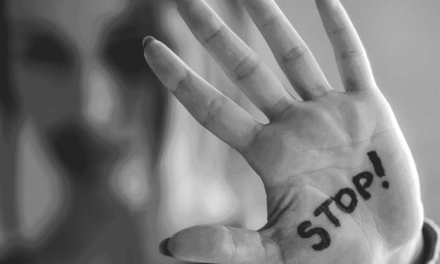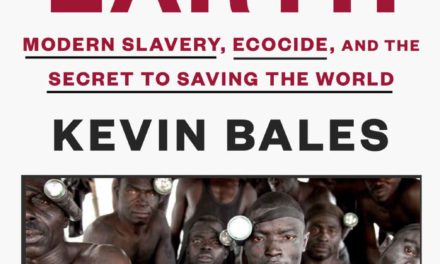NOVEMBER 30, 2023 — GENEVA (SWITZERLAND)
The video of this full event is available HERE.
MGR. ROBERT J. VITILLO: Well, thank you, Michel, for this invitation. It’s really a great honour and a privilege to offer some perspectives in this meeting that aims to reflect and plan actions in response to two human phenomena that are in stark contrast position in conflict, that is human trafficking and human rights.
The former has aptly been described by Pope Francis as an open wound on the body of contemporary society, the latter which was solemnly and universally declared with no dissenting votes by the United Nations General Assembly. Here I quote the words of a former president of the Human Rights Council, an Ambassador from Nigeria, who said, “Strove to articulate and codify the transcendent principles of the inherent dignity of each and every human person from the moment of conception to natural death.”
While governments had made significant efforts to preserve these human rights, as Michel said, and also our last speaker said, I feel compelled to note with great regret that various situations in today’s world point out the blatant disrespect for the human rights mechanisms that have been established, and even greater disrespect for the members of our human family who are the bearers of such rights.
Human trafficking certainly represents one of the greatest human rights failures of past and present eras. Such failure may be rooted in our limited focus on the legal and technical aspects. With all due respect to the attorneys here and promotion of human rights, whilst such elements are fundamental to such efforts, they are not at all sufficient.
In this regard, at least in my opinion, the Catholic Church’s approach to human rights maybe quite helpful since we never articulate a right without presenting its concomitant responsibility.
Thus, as rights bearers, all members of the human family have responsibilities to recognize, promote and defend both rights of their own as well as the rights of others. With regard to human trafficking, I believe that States, civil society and individuals all need to understand and effectively respond to the root causes of human trafficking.
Given the complex phenomena of human trafficking and forced unsafe migration, I am fully aware of the impossibility to capture all the root causes in a short period of time. I’ll take this opportunity to cite some examples of efforts undertaken by my own organization, the International Catholic Migration Commission, or ICMC, to prevent human trafficking and smuggling. Address the needs of its survivors, and advocate with the entire human family to eliminate this evil from our world of today and in the future. Since some of you may not have heard of ICMC previously, I’ll give a brief introduction to this organization. It was founded by Pope Pius XII in 1951, and he gave us the mandate to form a network of Catholic institutions, including groups of Catholic Bishops worldwide, as they respond to migration and refugee challenges. We quickly began by resettling refugees from Europe to North and South America and elsewhere, by protecting those who were vulnerable to abuse, even though we didn’t use the words human trafficking in those days. We continue our resettlement and humanitarian program to this very day. We have some 300 staff working in some 40 countries, but this is only the tip of the iceberg when compared to the thousands of staff and volunteers engaged by local, regional and global church efforts by dioceses says religious congregations, Catholic-inspired organizations, and those good neighbours inspired by the gospel to fulfil Pope Francis’s invitation to welcome, protect, promote and integrate refugees and migrants wherever they may be.
Now for some of the causes.
Root cause number one, at least in my perspective, is extreme poverty and unequal access to enjoy basic human rights to a lifeworthy of God-given human rights and human dignity, education at all levels, as well as decent work, housing and the physical, social and spiritual conditions that help children and adults to provide adequately for themselves and their families.
Those deprived of such basic essentials of life easily become more vulnerable to human trafficking, or to desperately seek unsafe migration routes. The 2023 Global Multidimensional Poverty Index from the UN Development Program shows that 1.1 billion out of 6.1 billion people, just over 18%, live in an acute multidimensional policy across 110 countries.
Sub-Saharan Africa with 534 million and Southeast Asia with 389 million, are home to approximately five out of every six poor persons. Nearly two-thirds of all poor people, 730 million people live in middle-income countries, making action in these countries vital for reducing global poverty.
In speaking about different causes of human trafficking, Pope Francis calls our attention to “The first place of poverty, underdevelopment and exclusion, especially when combined with a lack of access to education or scarce, even nonexistent employment opportunities.”
Root cause number 2, the lack of birth registration and other important documents, the 2020 reported the Independent Commission of Inquiry on the Syrian Arab Republic issued this alarm: “Girls and boys also face considerable obstacles related to documentation and are vulnerable to exploitation through child labour or child marriage, often as a result of disappearance of male parental figures. Crucially for their long-term prospects, a huge number of children have missed out on years of education and are currently out of school. This status quo will affect the ability of boys and girls to exercise their basic rights in innumerable ways as they grow older.
The lack of such documentation prevent access to vital services, and often forces migrant and refugee children and adults to seek the services of smugglers and traffickers to reach their destinations, to be reunited with family members, or to accept in decent or exploitative work situations.
One in four children under age five, 166 million on average, are not registered in the world today, since parents often are deterred from applying for such necessary documentation because of high costs and complicated bureaucratic procedures imposed by public offices. Similar challenges are faced by those migrants and refugees who do not have access to their academic diplomas or certificates for professional or otherwise specialized skills training. The Vatican’s 20 Points document toward the Global Compacts on Migrants and Refugees of 2018 encourages States, “To adopt policies that require the registration of all births, providing each newborn with a birth certificate, and to enact legislation that enables the recognition transfer and further development of the formal skills of all migrants, asylum seekers and refugees in the host country. The International Catholic Migration Commission, in fact, is redoubling its efforts to encourage birth registration by working with local church inspired organizations in Burkina Faso, Central African Republic, Haiti and India to train local parish volunteers to accompany parents as they apply for birth certification for their children.
Root cause number 3. Fixation of business almost exclusively on amassing more money and profit easily leads to the commodification and exploitation of people, which in turn could result in vulnerability of poor and marginalized people to human trafficking. The 2021 Global Estimates of the International Labor Organization indicate that 28 million were in forced labour. It should be noted that compared to 2016 Global Estimates 10 million more people are aware in modern slavery. Most forced labour occurs in the private economy, 86% of forced labour situations are imposed by private actors, 63% in the private economy and sectors other than commercial sexual exploitation, and 23% enforce commercial sexual exploitation.
State-imposed forced labour accounts for the remaining 14% of people in forced labour. The Organization for Economic Cooperation and Development reports that this type of labour is estimated to generate at least $150 billion per year of illegal profits in the private economy worldwide. That’s cited by the ILO.
Human trafficking occurs with the collusion of corrupt officials, with criminal gangs addressing human trafficking and corruption jointly is more effective than addressing these two issues individually. Pope Francis warns, “There is a sociological fact, organized crime and the illegal trafficking of human beings choose their victims among people who today have little means of subsistence and even less hope for the future.” “To be clearer,” he says, “among the poorest, among the most neglected, among the most discarded.”
For the past five years, ICMC has coordinated a multifaceted research, capacity building, and advocacy project in partnership with more than 30 Catholic-inspired organizations and the International Labour Organization on, “The Future of Work: labour after Laudato Sì,” which through primary research and collection of good practice models, examine ways to prevent exploitative, indecent, and corrupt labour practices that often are linked to abuses of human trafficking, corruption, and exploitation of the most vulnerable people in society, and identifies good practice models being employed in various parts of the world. ICMC also is supporting programs of the local churches in Côte d’Ivoire to build skills, capacity, and to promote entrepreneurship among deportees who have been returned from Europe but still are vulnerable to traffickers and smugglers, and in Central African Republic to teach basic literacy and vocational skills to returning child soldiers.
Root Cause Four: The Demand Side. The Vatican’s pastoral orientations on human trafficking points to, “The different areas in which the victims of human trafficking work or operate. Agriculture, domestic work, prostitution, etcetera,” and points out that, “Consumers constitute a huge mass who seem largely unaware of the exploitation, yet enjoy the benefits of the services provided by trafficked persons.” In her 2023 report to the UN Human Rights Council, UN Special Rapporteur on Trafficking in Persons, Siobhán Mullally declared, “Taking seriously the obligations concerning prevention of trafficking in persons require systemic and urgent law and policy reforms rooted in international human rights law, addressing climate change, environmental degradation, and the loss of biodiversity.”
Pope Francis challenges us to examine our own consciences and behaviour. “Certainly there is a lot of ignorance on the topic of trafficking, but sometimes there are also seems to be a little will to understand the scope of the issue. Why? Because it touches close to our own conscience. Because it is thorny, because it is shameful. Then there are those who, even knowing this, do not want to speak because they are at the end of the supply chain as a user of the services that are offered on the street or on the internet.”
ICMC works to prevent human trafficking among the vulnerable group of refugees and migrants in irregular situations by providing job training that leads to access to decent jobs or to starting their own businesses, and by maintaining safe spaces for socialization and learning among women and child refugees who are survivors of sexual and/or gender-based violence. In Malaysia, where ICMC operates a service for refugee survivors of SGBV, we have constituted a refugee protection force from within the refugee communities to serve as first responders, monitor safety and progress of survivors, and to work to change harmful cultural practices and attitudes from within their own ethnic communities.
I conclude by citing once again the words of Pope Francis, who has been such a driving force for the church and for all people of goodwill, to confront the root causes of human trafficking with persistence and determination and with the grace of God to put the gospel into action. “Let us not pretend and look the other way. There is greater complicity than we think. These issues involve everyone.” Thanks very much.

